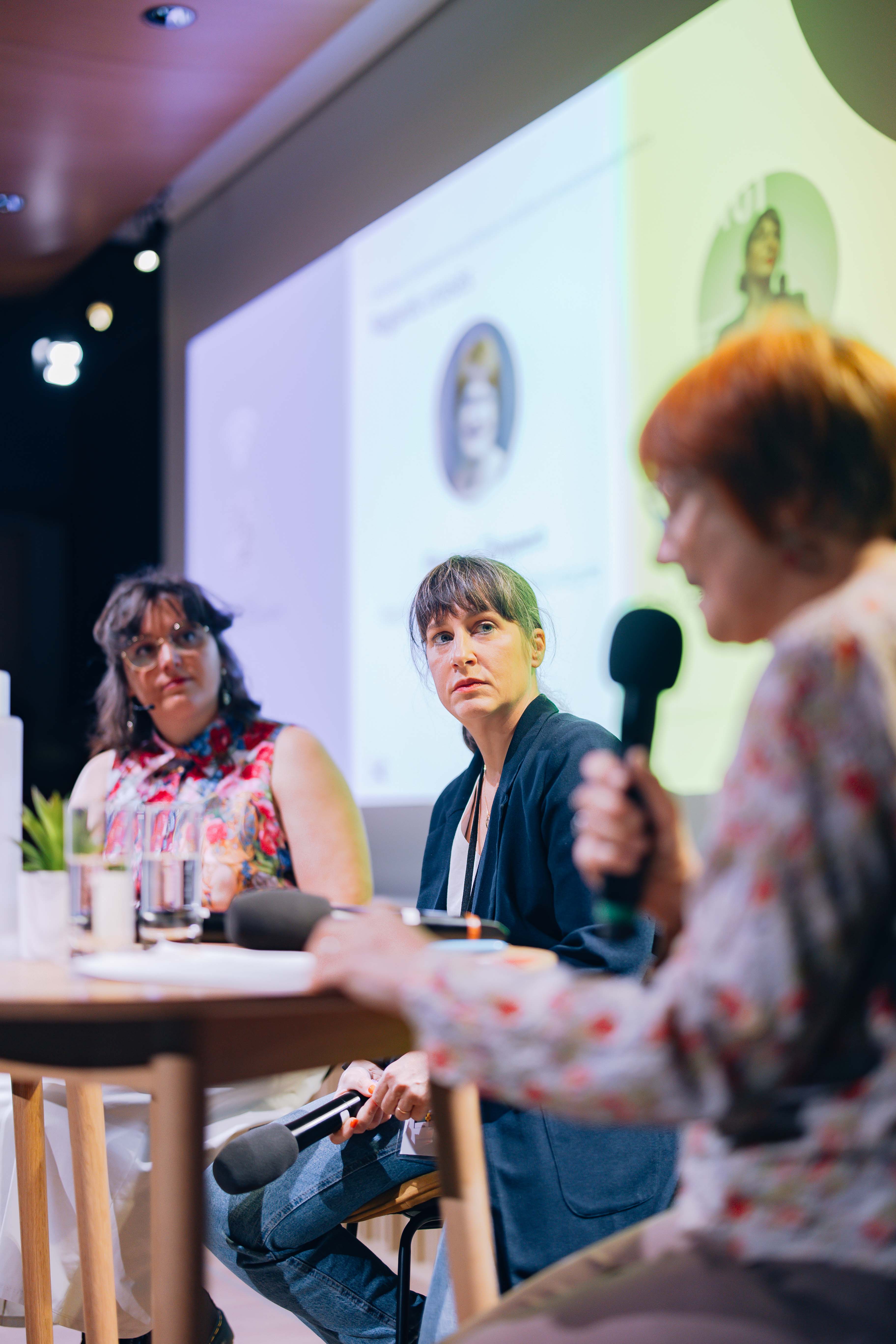Between climate emergency and social justice: Rethinking the intersection of CSR and D&I policies

Friday, May 23, 2025, on the occasion of its General Assembly, AFMD brought together over 100 D&I and CSR professionals to explore ways of intersecting social and environmental policies: a look back at an event full of ideas and perspectives!
Taking a step back with diverse perspectives and 12 forward-looking workshops: what better way to harness collective intelligence towards a crucial topic at the intersection of the climate emergency and social justice issues?
The morning session provided an opportunity to explore potential intersections between social and environmental dimensions within organizations. Both the approach and the issues discussed align closely with the strategic mandate of Delphine Pouponneau and Romain Plaisantin, co-presidents of AFMD: bringing actors together, promoting more cross-functional action, and shedding light on possible paths forward.
A conference..
The conference “Intertwining social and environmental policies within organizations: the challenge of 2025?” gave the floor to two experts:
- Florence Chappert, Head of the Gender Mainstreaming Mission at the French National Agency for the Improvement of Working Conditions (ANACT)
- Ingrid Kandelman, Coordinator of the Social and Environmental Dialogue programme for the Convention of Companies for the Climate (CEC)
This discussion highlighted the importance of integrating gender issues into the design and implementation of the ecological transition, to avoid reinforcing existing inequalities. It also emphasized the need to rethink work models—shifting the focus from performance and optimization to the robustness of organizations.
 ... and forward-thinking workshops
... and forward-thinking workshops
Participants then took part in forward-looking workshops, imagining disruptive scenarios for the year 2035, based on four key situations:
In 2035...
One in two employees suffers from eco-anxiety, now officially recognized as an occupational illness.
Agreements on Quality of Life at Work (QLW), gender equality, and ecological transition merge into a single “just transition” agreement.
The retirement age is set at 67.
From May to September, working after 2 p.m. is no longer possible due to extreme heat.
The “How to, What if” method used in these workshops was developed by Futuribles. For each disruptive scenario, participants were invited to identify the causes that could lead to such a situation, then reflect on its potential consequences: How would organizations be transformed? What impact would it have on D&I and CSR leaders, employees, and public servants? And on society as a whole?
The summaries produced following these workshops will help identify early signs of change and anticipate transformations in the work world.
This edition builds on an approach initiated in 2024, when forward-looking workshops had already been used to explore disruptive scenarios as a way to rethink D&I policies.
Stay tuned—the key takeaways from this year’s workshops will soon be available on our website and social media channels!

